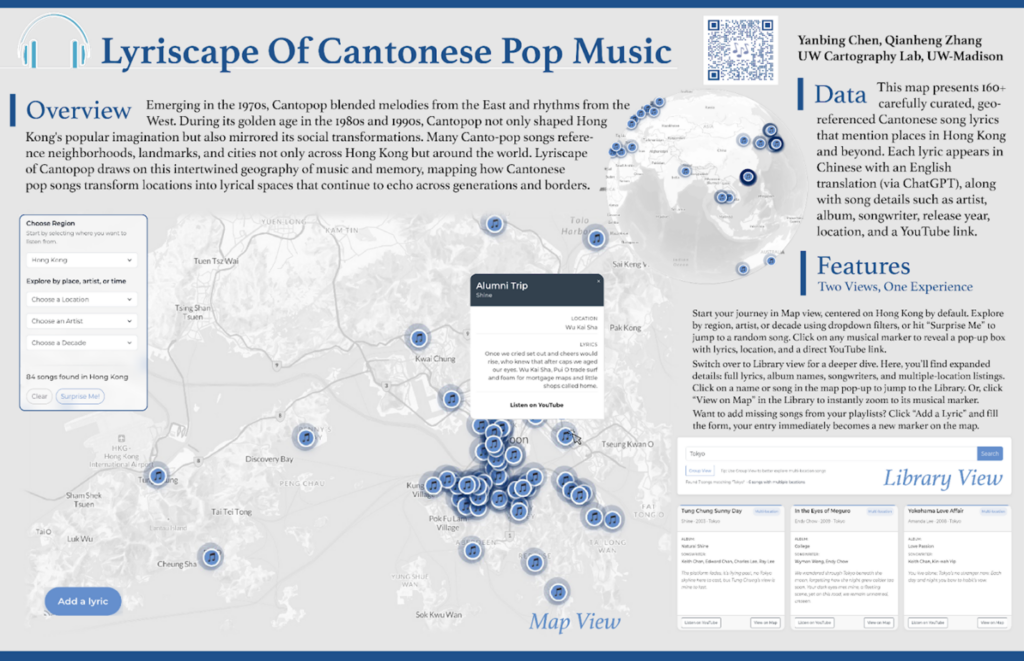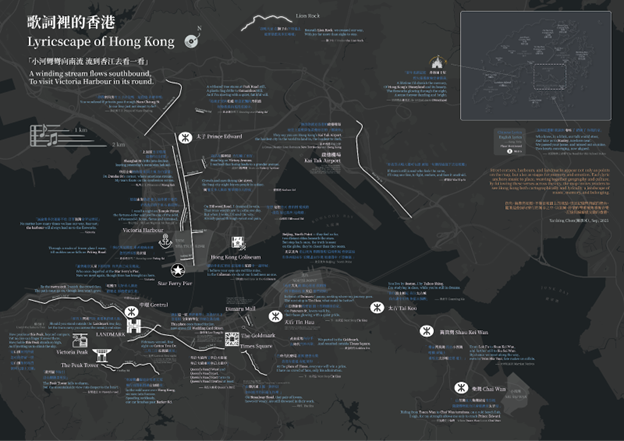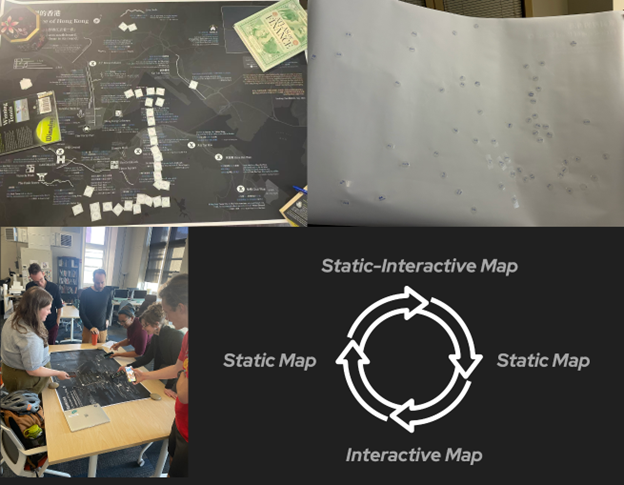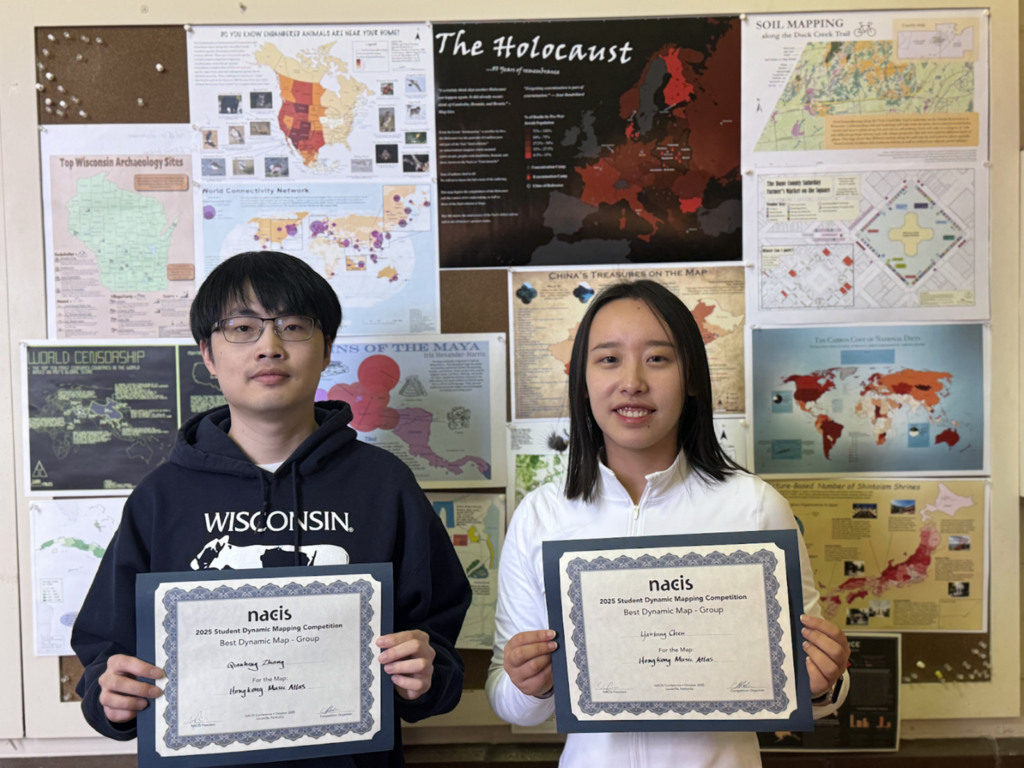Have you ever tried to remember a song linked to a particular street name or landmark? Maybe you could hum it or sing some of the lyrics but not remember who wrote it or exactly what it sounded like.
What if you could pull up an interactive map, look for that street name or landmark, find the tune you’re thinking about, and tap to listen to it right away?
Two geography PhD students, Yanbing Chen and Qianheng Zhang, worked together to make that vision a reality. Their project, Hong Kong Music Atlas (Lyriscape of Cantopop), is an interactive web map that visualizes over 160 Cantonese songs referencing locations across Hong Kong and beyond. At the 2025 North American Cartographic Information Society (NACIS) conference, this lyrical exploration won the Best Student Dynamic Map – Group award in the 27th Annual Student Dynamic Map Competition.

Musical Inspiration Strikes

The bilingual map started with a personal moment. “I was listening to one of my favorite songs that mentioned several places in Hong Kong,” Yanbing recalls. That moment inspired her to begin collecting lyrics tied to place, starting with favorites from her own playlists.
The first version was a static map of 33 songs, which resonated deeply with others when shared on social media. With Qianheng’s help building the prototype, the project evolved into an interactive map that allows users to explore by region, artist, or decade, or click “Surprise Me” to discover a random song. A Library View supports lyric or place search, seamlessly linking back to the map. The entire map is bilingual, with lyric translations carefully refined with ChatGPT to preserve rhyme and poetic tone.
Making Emotional Connections via Cartography

Yanbing also experimented with a static interactive hybrid and presented it at NACIS. This version embeds near field communication (NFC) chips into a printed map. When users tap a song name, location icon, or place name with a smartphone, the corresponding song plays on Spotify, transforming the paper map into a musical interface.
This map does not simply display data. It visualizes topophilia, the deep emotional connection between music and place. “It started with a personal connection,” Yanbing reflects, “but mapping it made me realize how music becomes a vessel for memory. We do not just listen to songs; we carry places within them.”
Congratulations on your well-deserved award, Yanbing and Qianheng! Your thoughtful approach to this concept illuminates how geography can connect personal inspiration to universal experiences.

Yanbing Chen is a PhD student affiliated with the UW Cartography Lab, advised by Dr. Jonathan K. Nelson. Her research focuses on interactive cartography, information visualization, and GIScience education.
Qianheng Zhang is a PhD student affiliated with the UW-Madison GeoDS Lab, advised by Dr. Song Gao. His research focuses on urban ecology, generative artificial intelligence, and cartography.



